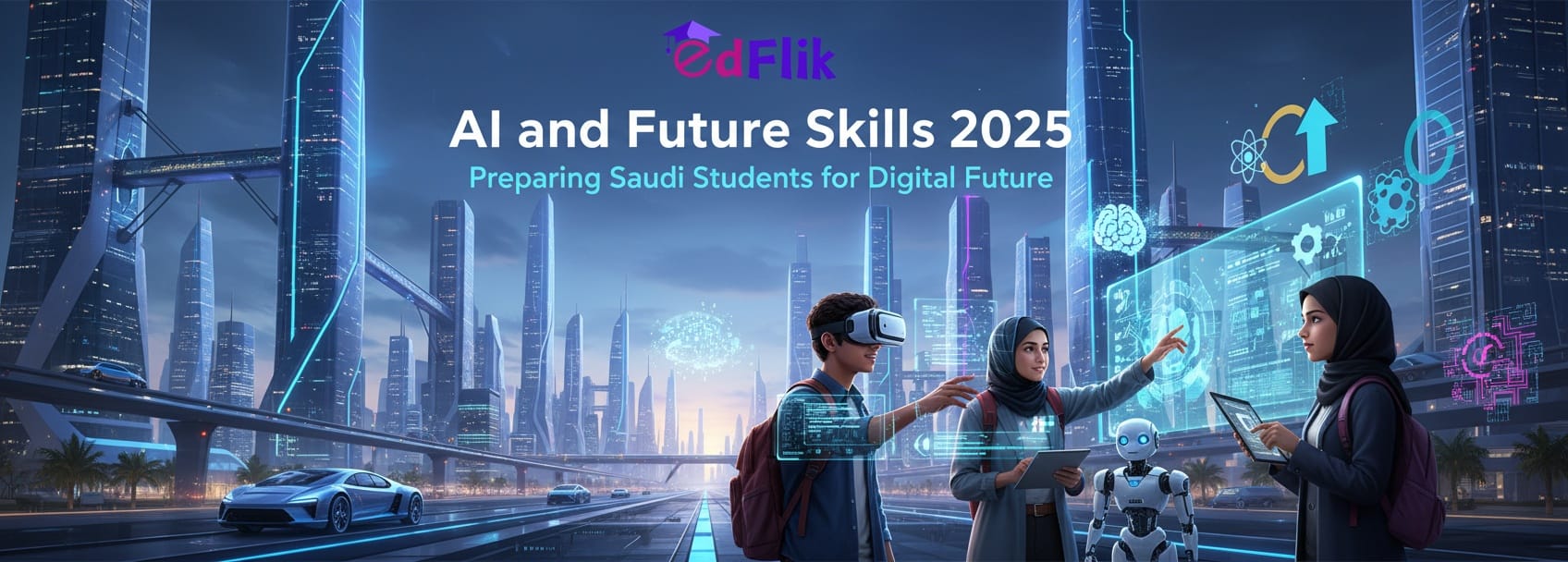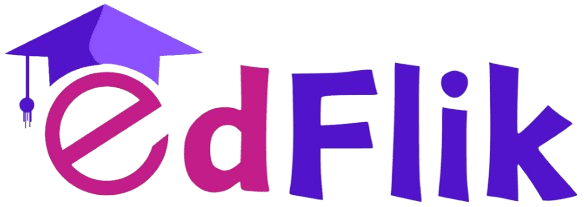AI and Future Skills: Preparing Saudi Students for the Digital Age 2025 🤖

Introduction: Saudi Arabia's Educational Revolution in the Digital Era 🌟
In the heart of Saudi Arabia's transformative Vision 2030, a revolutionary educational paradigm is emerging. The Kingdom is positioning itself as a global leader in digital education, preparing students for an AI-driven future where technology and human intelligence converge to create unprecedented opportunities. This comprehensive guide explores how Saudi students can harness artificial intelligence and future skills to become global leaders in the digital economy, ensuring they remain competitive in an increasingly connected world.
The Digital Transformation Landscape in Saudi Arabia 📊
Vision 2030: Educational Technology Integration
Key Government Initiatives
- National Digital Transformation Program
- Saudi Digital Academy Launch
- AI Strategy Implementation
- Future Skills Development Framework
Statistical Overview
- Digital Education Investment: SAR 20 billion allocated
- AI Curriculum Implementation: 85% of schools by 2025
- Future Skills Training: 2 million students targeted
- Technology Integration: 95% classroom digitization goal
Understanding AI in Education: A Comprehensive Framework 🧠
What is AI Education?
Core Components
- Machine Learning Fundamentals
- Pattern recognition
- Data analysis
- Predictive modeling
- Algorithm understanding
- Computational Thinking
- Problem decomposition
- Logical reasoning
- Systematic approach
- Creative solution development
- Digital Literacy
- Technology proficiency
- Information evaluation
- Digital communication
- Cybersecurity awareness
AI Applications in Saudi Education
Classroom Integration Examples
- Personalized Learning Platforms
- Intelligent Tutoring Systems
- Automated Assessment Tools
- Language Learning AI
- STEM Project Enhancement
Future Skills Framework for Saudi Students 🚀
Essential 21st Century Competencies
1. Critical Thinking and Problem-Solving
Why It Matters:
- Complex challenge navigation
- Innovation catalyst
- Decision-making enhancement
- Analytical skill development
Development Strategies:
- Case study analysis
- Debate participation
- Research projects
- Collaborative problem-solving
2. Digital and Technology Literacy
Core Components:
- Programming fundamentals
- Data interpretation
- Digital tool mastery
- Technology ethics understanding
Practical Applications:
- Coding workshops
- App development projects
- Data visualization exercises
- AI tool experimentation
3. Communication and Collaboration
Global Competency Requirements:
- Multilingual proficiency
- Cross-cultural communication
- Virtual collaboration skills
- Presentation excellence
Skill Building Activities:
- International project partnerships
- Virtual exchange programs
- Public speaking workshops
- Multimedia content creation
4. Creativity and Innovation
Innovation Mindset Development:
- Design thinking methodology
- Creative problem-solving
- Entrepreneurial thinking
- Artistic expression integration
Practical Implementation:
- Innovation challenges
- Creative project portfolios
- Startup simulation exercises
- Artistic technology integration
AI Learning Tools and Resources for Saudi Students 💻
Recommended AI Learning Platforms
1. Beginner-Friendly AI Tools
- Scratch for AI: Visual programming introduction
- MIT App Inventor: Mobile app creation
- Code.org AI Curriculum: Structured learning path
- Khan Academy AI Course: Comprehensive foundation
2. Advanced AI Learning Resources
- TensorFlow for Students: Machine learning framework
- Python Programming: AI language mastery
- Jupyter Notebooks: Data science exploration
- Google AI Education: Professional-grade resources
3. Saudi-Specific AI Initiatives
- KAUST AI Programs: University-level courses
- NEOM Tech Academy: Future city skills
- Saudi Digital Academy: Government-backed training
- Aramco Digital: Industry-specific learning
Career Preparation: AI-Driven Job Market 🏆
Emerging Career Opportunities in Saudi Arabia
High-Demand AI Careers
- AI Engineer
- Average Salary: SAR 180,000-300,000
- Growth Projection: 45% by 2030
- Data Scientist
- Average Salary: SAR 150,000-250,000
- Growth Projection: 38% by 2030
- Machine Learning Specialist
- Average Salary: SAR 160,000-280,000
- Growth Projection: 42% by 2030
- AI Product Manager
- Average Salary: SAR 200,000-350,000
- Growth Projection: 35% by 2030
Industry-Specific Applications
NEOM and Future Cities
- Smart city development
- Sustainable technology integration
- Urban planning AI
- Environmental monitoring systems
Healthcare AI Innovation
- Medical diagnosis assistance
- Drug discovery acceleration
- Patient care optimization
- Telemedicine advancement
Financial Technology (FinTech)
- Algorithmic trading
- Fraud detection systems
- Customer service automation
- Risk assessment modeling
Practical Implementation Strategies for Students 🎯
Age-Appropriate AI Learning Pathways
Elementary Level (Ages 6-11)
Learning Objectives:
- Basic computer literacy
- Simple programming concepts
- Pattern recognition games
- Creative technology use
Recommended Activities:
- Visual programming with Scratch
- Educational AI games
- Robot programming basics
- Digital storytelling projects
Middle School Level (Ages 12-15)
Learning Objectives:
- Intermediate programming skills
- Data analysis introduction
- AI ethics understanding
- Collaborative project development
Recommended Activities:
- Python programming introduction
- Data visualization projects
- AI chatbot creation
- Machine learning experiments
High School Level (Ages 16-18)
Learning Objectives:
- Advanced AI concepts
- Real-world application development
- Research project completion
- Career pathway exploration
Recommended Activities:
- Advanced machine learning projects
- AI research paper writing
- Internship opportunities
- University preparation courses
EdFlik's Revolutionary Approach to Future Skills Development 🌟
Comprehensive AI and Future Skills Programs
Personalized Learning Pathways
- AI-Powered Tutoring: Adaptive learning algorithms
- Skill Assessment: Comprehensive capability evaluation
- Progress Tracking: Real-time development monitoring
- Goal-Oriented Learning: Customized achievement targets
Affordable Excellence
- Cost-Effective Solutions: 60% more affordable than traditional centers
- Flexible Learning Options: Online and hybrid models
- Scholarship Opportunities: Merit-based financial support
- Family Package Deals: Multiple student discounts
Expert Guidance
- Certified AI Instructors: Industry-experienced educators
- Mentorship Programs: One-on-one guidance
- Career Counseling: Future pathway planning
- University Preparation: Advanced placement support
Success Stories: Saudi Students Thriving with EdFlik
Case Study 1: Ahmed's AI Journey
Student Profile: Ahmed, 16, Riyadh
Challenge: Limited AI exposure in traditional curriculum
EdFlik Solution: Comprehensive AI learning program
Outcome:
- Developed first mobile app
- Won national coding competition
- Secured university scholarship
Case Study 2: Fatima's Data Science Success
Student Profile: Fatima, 17, Jeddah
Challenge: Interest in data science without resources
EdFlik Solution: Personalized data science mentorship
Outcome:
- Created healthcare data analysis project
- Published research paper
- Accepted to top international university
Overcoming Challenges in AI Education 🛠️
Common Obstacles and Solutions
Challenge 1: Limited Access to Technology
Solution:
- Cloud-based learning platforms
- Mobile-friendly AI tools
- Shared resource programs
- Government technology initiatives
Challenge 2: Language Barriers
Solution:
- Bilingual learning materials
- Arabic AI programming resources
- Cultural context integration
- Peer support networks
Challenge 3: Teacher Preparation
Solution:
- Educator training programs
- Professional development workshops
- Collaborative teaching models
- Expert mentorship networks
Global Competitiveness: Saudi Students on the World Stage 🌍
International Benchmarking
Global AI Education Rankings
- Singapore: #1 in AI curriculum integration
- Finland: #2 in future skills development
- South Korea: #3 in technology education
- Saudi Arabia: Rapidly climbing to top 10
Competitive Advantages for Saudi Students
- Government Support: Unprecedented investment
- Cultural Diversity: Multicultural learning environment
- Economic Opportunities: Growing tech sector
- Global Connections: International partnership programs
Future Trends and Predictions 🔮
Emerging Technologies in Education
Next-Generation Learning Tools
- Virtual Reality Classrooms
- Augmented Reality Learning
- Blockchain Credentialing
- Quantum Computing Education
Predicted Educational Shifts
- Personalized AI Tutors: Every student will have AI assistance
- Skill-Based Assessment: Moving beyond traditional testing
- Global Classroom Connections: International collaboration standard
- Continuous Learning Models: Lifelong education integration
Practical Action Steps for Parents and Students 📋
Immediate Implementation Strategy
For Parents
- Research AI learning opportunities
- Invest in technology resources
- Encourage experimentation
- Support continuous learning
For Students
- Start with basic programming
- Explore AI tools and platforms
- Join online communities
- Participate in competitions
For Educators
- Attend professional development
- Integrate AI tools in curriculum
- Collaborate with tech experts
- Create innovative learning experiences
Frequently Asked Questions About AI Education 🤔
1. At what age should students start learning AI?
Answer: AI concepts can be introduced as early as age 6 through visual programming and pattern recognition games. Formal AI education typically begins around age 12-14, with advanced concepts introduced in high school.
2. Do students need advanced math skills for AI learning?
Answer: While advanced mathematics helps, students can begin with basic AI concepts using visual tools. Mathematical complexity increases gradually as students progress through different levels.
3. How can parents support AI learning at home?
Answer: Parents can encourage experimentation, provide technology resources, participate in learning activities, and connect with educational programs like EdFlik's comprehensive AI curriculum.
4. What career opportunities exist for AI-skilled students in Saudi Arabia?
Answer: NEOM, Aramco, healthcare institutions, financial services, and numerous startups are actively seeking AI-skilled professionals, with salaries ranging from SAR 150,000 to SAR 350,000 annually.
5. How does EdFlik make AI education affordable?
Answer: Through online delivery, efficient resource utilization, and innovative teaching methods, EdFlik provides comprehensive AI education at 60% lower cost than traditional centers.
Conclusion: Embracing the AI-Powered Future 🌈
Saudi Arabia stands at the threshold of an educational revolution. By embracing AI and future skills development, students are not just preparing for careers—they're positioning themselves to lead global innovation.
The journey toward AI literacy and future skills mastery begins with a single step. With the right guidance, resources, and commitment, every Saudi student can become a digital leader, contributing to the Kingdom's Vision 2030 and beyond.
Ready to Launch Your AI Learning Journey?
👉 Free AI Skills Assessment
🤖 Personalized Learning Path Creation
📞 WhatsApp: +918878896600
📧 Email: support@edflik.com
🌐 Website: www.edflik.com

